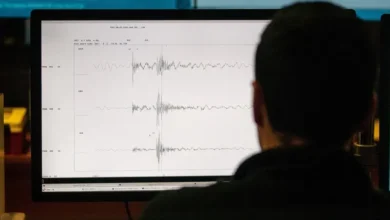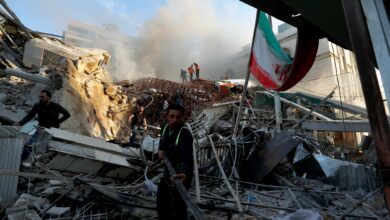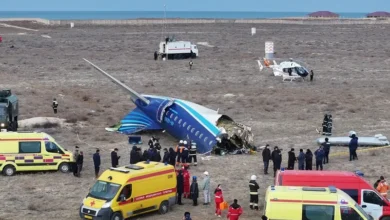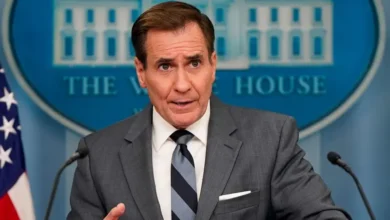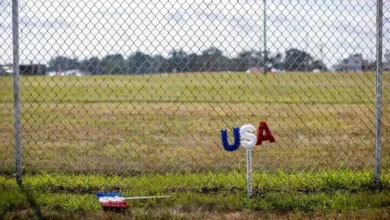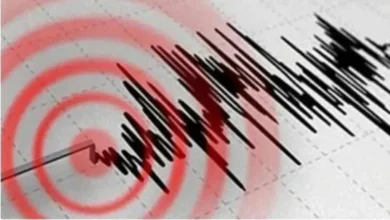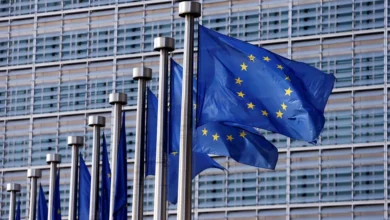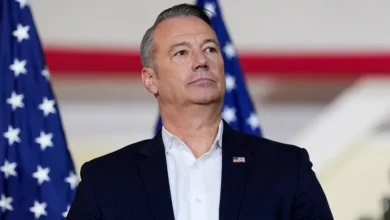What US, Europe security guarantees for Ukraine could look like
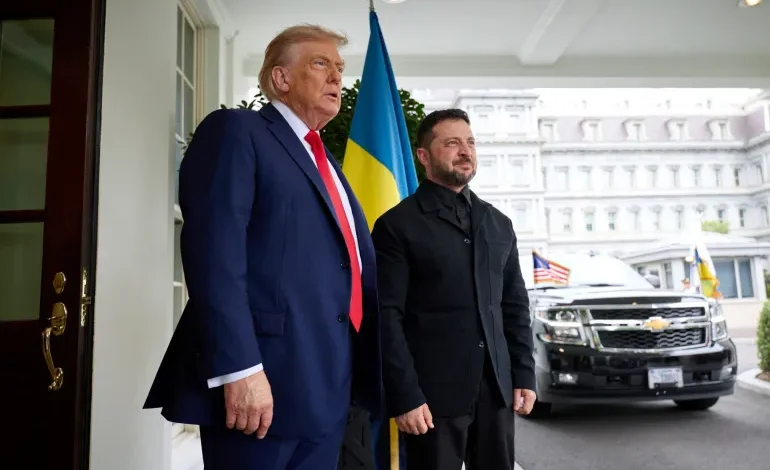
When United States President Donald Trump invited his Ukrainian counterpart Volodymyr Zelenskyy for talks at the White House on Monday, the European leaders rushed to Washington, DC to stand alongside Zelenskyy in a show of support.
The last meeting between Trump and Zelenskyy, held in February at the Oval Office, did not go down well for the Ukrainian leader. He was publicly berated and blamed for the Ukraine war – which was actually started by Russia in February 2022.
The European leaders wanted to ensure Kyiv’s interests were taken into consideration days after Trump rolled out a red-carpet welcome to Russian President Vladimir Putin in Alaska talks.
And much to their relief, the fraught issue of Ukraine’s security guarantees did emerge as one of the key talking points in the White House talks. Trump, who has ruled out NATO membership for Kyiv, offered a US role in the security of Ukraine.
While the specifics of the security guarantees have not been revealed, Trump added that European countries would be the “first line of defence”.
Here is more about Ukraine’s security guarantee, what the US role would be, and how would it be different from NATO security?
What has Trump said?
“When it comes to security, there’s going to be a lot of help,” Trump told reporters on Monday, referring to the US role in Ukraine’s security.
Trump added that European countries would be involved in providing these security guarantees.
“We have people waiting in another room, right now, they’re all here from Europe,” Trump said during a summit at the White House attended by Zelenskyy and a group of European allies. “Biggest people in Europe. And they want to give protection. They feel very strongly about it, and we’ll help them out with that.”
In an interview with Fox News on Tuesday, the US president said European ground troops could be part of security guarantees but ruled out deployment of US ground troops to Ukraine.
“When it comes to security, they’re willing to put people on the ground,” he told Fox News, referring to European allies whom he met in the White House on Monday.
“We’re willing to help them with things, especially, probably, if you talk about by air, because no one has the kind of stuff we have, really, they don’t,” Trump said.
Ukraine has been seeking NATO membership to boost its security against Russian aggression, but the Trump administration has ruled that out, calling it “unrealistic”. On Tuesday he reiterated Ukraine won’t be able to join NATO.
Trump had been asking Europe to take the front seat in providing security guarantees for Ukraine.
The European leaders who attended the summit on Monday included French President Emmanuel Macron, British Prime Minister Keir Starmer, German Chancellor Friedrich Merz, Italian Prime Minister Giorgia Meloni, Finnish President Alexander Stubb, European Commission President Ursula von der Leyen and NATO Secretary-General Mark Rutte.
Marina Miron, a postdoctoral researcher at the defence studies department at King’s College London, told Al Jazeera that Trump’s language was notably ambiguous during the summit because neither the US nor the Trump administration is genuinely willing to become directly involved.
What has Zelenskyy said?
In a post on X recapping his meeting with Trump, Zelenskyy wrote that security issues are “a key issue, a starting point towards ending the war.”
“We appreciate the important signal from the United States regarding its readiness to support and be part of these guarantees,” Zelenskyy wrote. However, he did not specify what these guarantees would be.
When a reporter asked Zelenskyy what security guarantees Ukraine needs, he responded, saying, “Everything.”
Later, Zelenskyy told reporters that the guarantees would be “formalised on paper within the next week to 10 days.”
“There will be discussions, and we are preparing the relevant formats,” he later wrote in a post on X, adding that “national security advisors are also in constant contact now.”
Separately, the Ukrainian leader added that Ukraine would buy US weapons worth $90bn.

